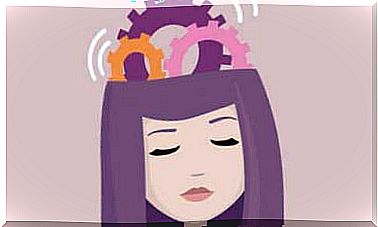Pregnancy: Loving Someone You Don’t Know Yet

Pregnancy is an umbilical cord that unites two hearts, two worlds in one where something wonderful is happening but at the same time unknown: our emotions can cross the protective barrier of the placenta to caress our child.
During pregnancy, the family is busy buying the cradle and clothes for the baby, and make sure that the mother has a good diet. But what if she is suffering from stress?
According to many scientists, most of the time, the emotional world of the mother is neglected, which can affect the development of the fetus.
Pregnancy is mystery and hope: it involves loving someone whose face you don’t even know. It’s imagining her laughter and the color of her hair as we stroke her shape through the mother’s skin, already transmitting our sincere affection to her.
Vivette Glover is a specialist in perinatal psychobiology from Imperial College London and a pioneer in what we know precisely as “Emotional education from the maternal womb”, a dimension of great interest and a transcendence that we want to share with you.

The importance of our emotions during pregnancy
Until recently, it was believed that the emotional world of the mother did not affect the development of the fetus. This is a mistake: works such as publications in the journal New Parents Support tell us that this “intrauterine magic package” is very receptive to emotions, especially during the fourth month.
Usually the means, society and the family itself extol the beauty of pregnancy. Yet in reality, rare are the times when we realize the importance of being able to connect physically and emotionally with the baby. This is why emotions can influence its development.
When emotions go beyond the placenta
Vivette Glover and specialists in Gestalt therapy stress the importance of caring for the mother in a more integral way. Ultrasounds and blood tests are not enough: it is necessary to take care of his emotional state.
- Dr. Glover carried out a study with 14,000 pregnant women, of which she measured the level of anxiety and stress. The follow-up lasted 5 years after childbirth, in order to see how the children were growing and maturing.
- It has been found that mothers who suffer from high stress are twice as likely to have children who are diagnosed as hyperactive.
- When the mother is in a stressful situation, the hypothalamus releases a hormone called CRH which in turn allows the adrenal glands to secrete cortisol.
- The placenta acts as a filter, and cortisol, detected as “toxic”, generally does not cross this barrier. However, if the levels of the hormone CRH are very high, they end up crossing the placenta to directly affect the fetus and put it “on alert”. It is important to take this into account.
The emotional education of children does not begin when they are born, but when they are developed in the womb.

Emotional education from the maternal womb
You do not yet know your child that you already see the world from another angle, and you have made your weaknesses your strengths.
We must take into account that his education begins from his development in this comfortable envelope, but not isolated.
From the womb, he is already very receptive not only to what is outside, but also to what happens inside.
That is why, in order to give an adequate emotional education to their child during these nine months of pregnancy, it is important that parents take into account these important aspects:
- You have surely heard more than once “the important thing is the child, so that for him, all the sacrifices are good” . The baby is important, of course, but we must also take care of the “blanket”, and above all of that heart which gives it life: the mother.
- Every mother experiences pregnancy in her own way: there are women who did not plan to get pregnant, others who face pregnancy after having had an abortion in the past.
It is necessary to take care of each case, to be aware of our particular reality and to face it with integrity and a lot of support. - Take more space, prioritize yourself, let yourself be invaded by positive stimuli: change the rhythm of your days and focus on the present, on promoting union with your companion, on offering yourself a few pleasant moments, to fill you with illusions and to face the changes in your body with normalcy.
- Try out new therapies: Nowadays there are lots of emotional education workshops during pregnancy.
Thus, applying mindfulness, practicing yoga, or doing belly massages while being calm and listening to music are activities that can offer benefits to both mothers and fetuses.










